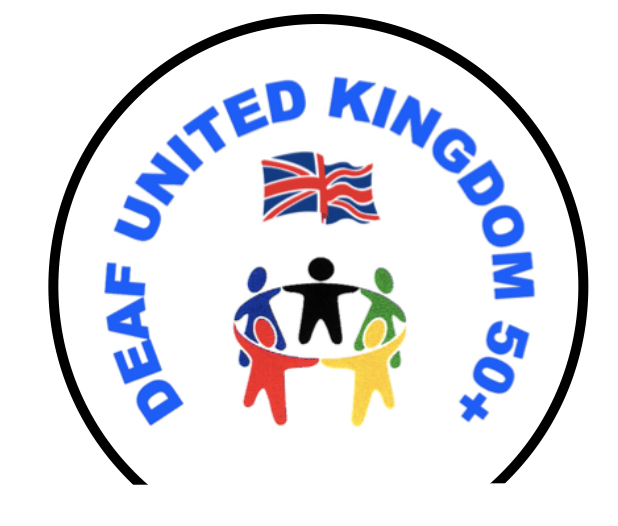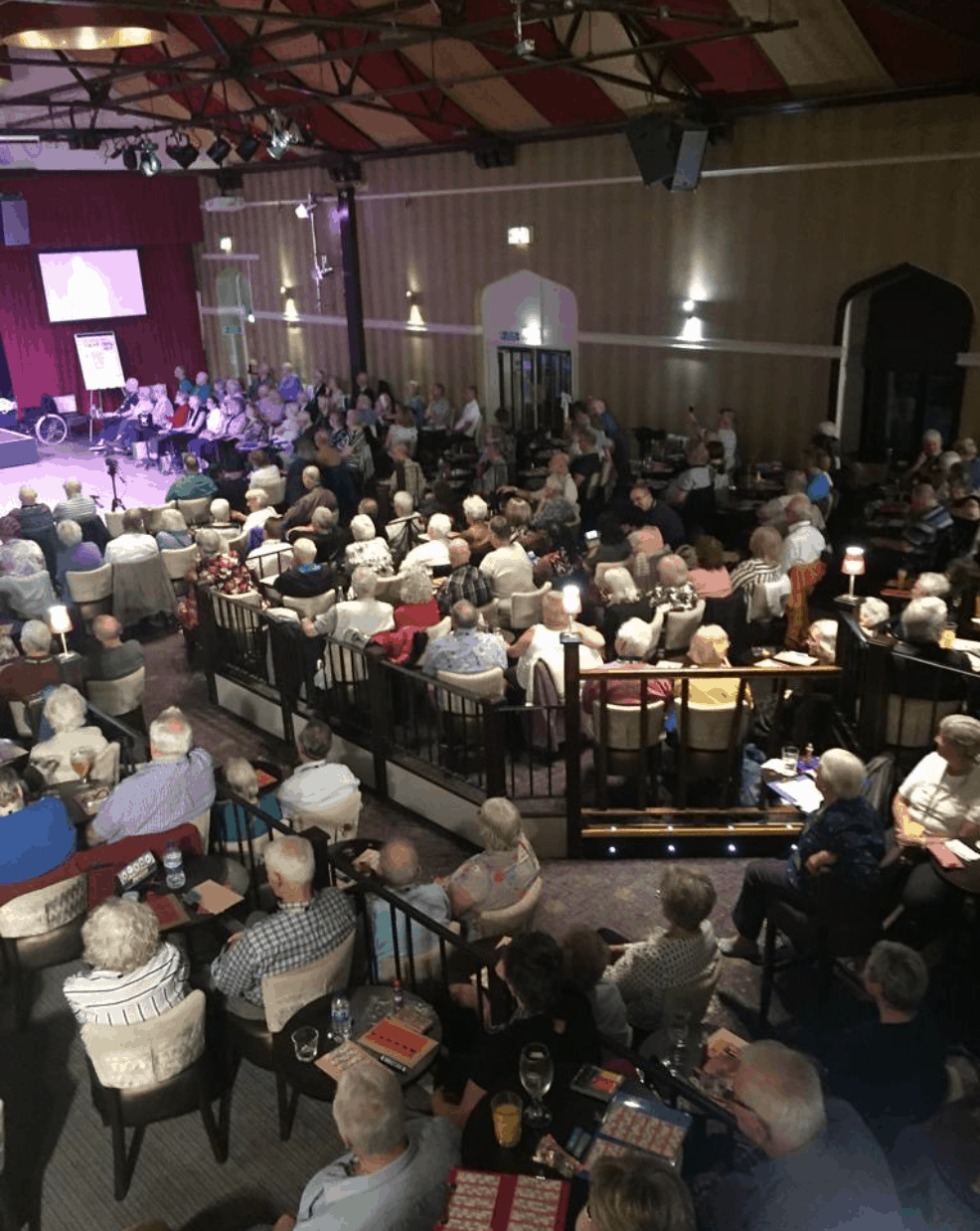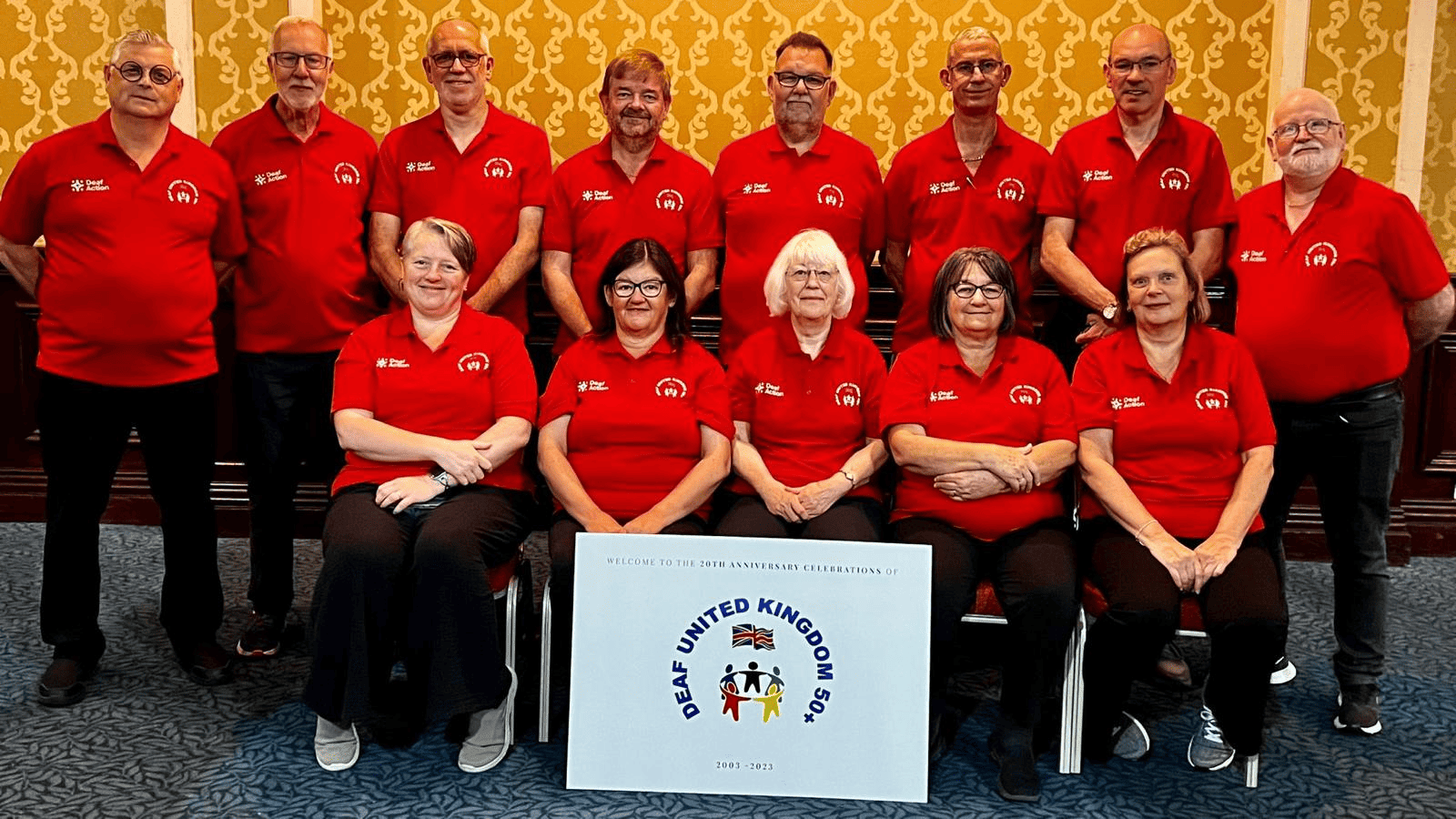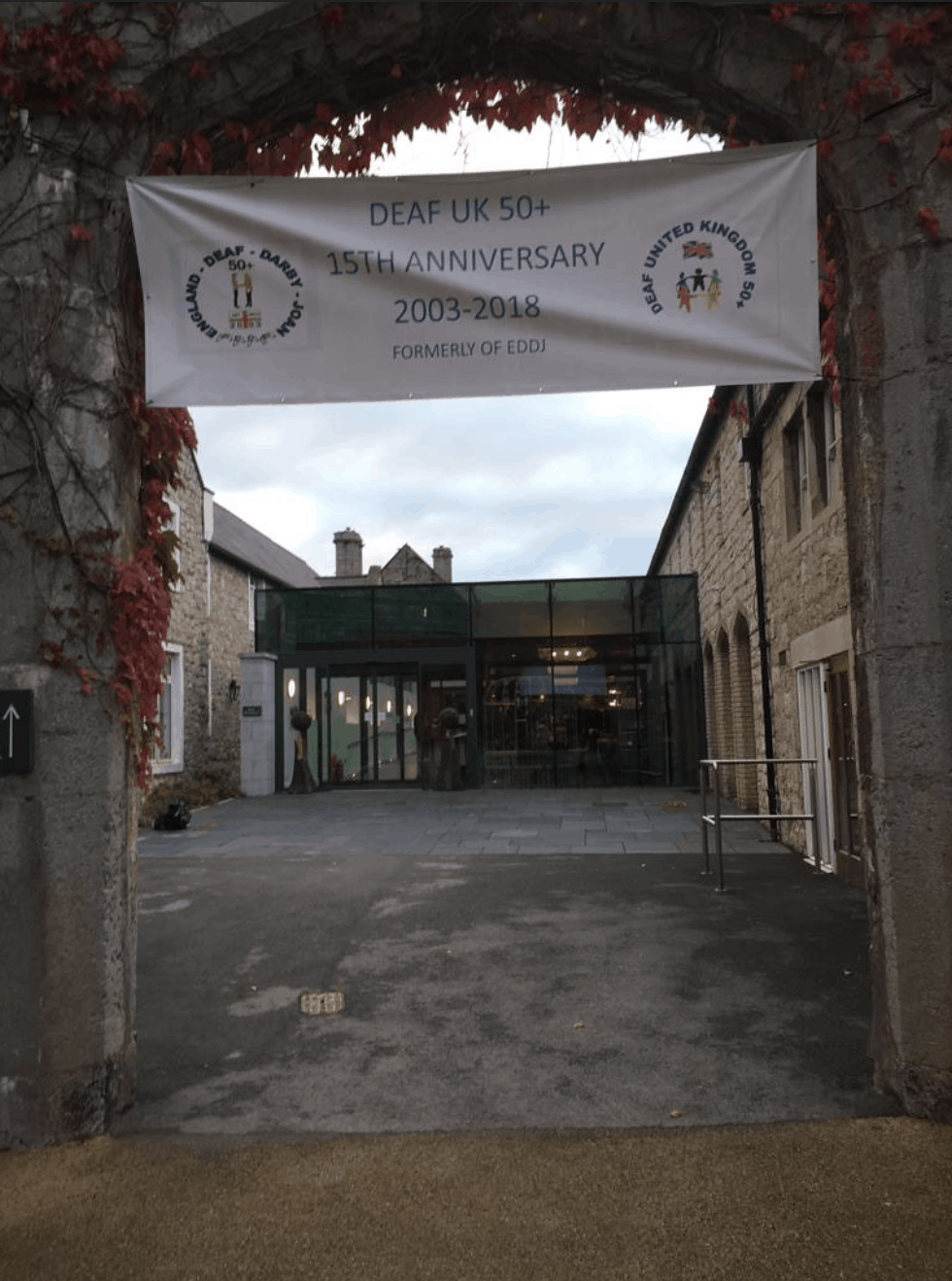
How our DEAf holidays began
ENGLAND DEAF DARBY & JOAN (EDDJ)
Originally set up in the 1990’s by having a one day lunch with bingo after and the first one was at Southend. At that time it was known as Eastern Deaf Darby & Joan. After that it was held each September and usually at a place in Eastern Region like Southend, Clacton on Sea to name a few.
Our Volunteers
See who the Deaf UK 50 Plus Volunteers are, and their roles, on the dedicated page.
See our current list of volunteers
There was also a group running one in the South and that was in April and most people would go to both if they could. After some years the South disbanded.
East continued till 2002 and at the end of the bingo it was announced that they were to disband. This came as a shock to everyone.
Below are the venues under old regimes as well as current
1993 GARONS BANQUETTING SUITE, SOUTHEND ON SEA
1994 MARKYATE NEAR DUNSTABLE
1995 GARONS BANQUETTING SUITE SOUTHEND ON SEA
1996 FOLKESTONE
1997 QUEENSWAY DUNSTABLE
1998 CLACTON ON SEA
1999 MARGATE
2000 CLIFFS PAVILION WESTCLIFF ON SEA
2001 EASTBOURNE
2002 GREAT YARMOUTH END OF THIS ERA
Following this people were asking someone to get it up and running and a committee was formed and held the first one under East Deaf Darby & Joan (EDDJ) at the town hall in Ipswich. Prior to that some fund raising was done as the previous group had dried up all the money on bingo.
Ipswich was successful with about seventy turning up and plans were made for the next year’s (2004) which was in Great Yarmouth. The co-ordinator noticed that there were some people staying overnight at Ipswich, therefore decided to have extended days at Great Yarmouth, but people had to do their own bookings of hotel/bed and breakfast
The Co-ordinator had plans to make it a holiday so we approached Pontins holiday camp at Lowestoft and booked the chalets and we had people coming. Part of our week we put on games such as whist drive, German whist, darts as well as the usual Bingo mid week.
We went back to Pontins at Lowestoft a couple times more and we had good attendance. In 2008 we went to Mill Rythe at Hayling Island and did our usual events.
Blackpool in 2009 and we nearly didn’t get there as nearer the time told they were shutting down and after some discussion managed to get them to stay open for us as a lot of preparation went into this and people had already paid, also EDDJ had paid in full, as well as booking train tickets in advance.
Due to the fact we went to Hayling Island we changed our name to England Deaf Darby & Joan still EDDJ as we were branching out from the East going to different venues.
One year we were supposed to go to Minehead and as they were having some work being carried out they moved us to Prestatyn in North Wales.
In 2012 we went to Butlins at Skegness and had a very big number attending.
Since then we have been to Minehead and Bognor Regis under Butlins.
It was at Minehead that we put on electric scooter games for those people who were using electric scooters so that they could participate in some games and they enjoyed this. We were also able to do this again at Bognor Regis.
We have been having this holiday once a year towards the end of September beginning of October and get a good number attending and some people have been coming each year. It gives an opportunity to see our friends and make new ones. Sometimes people attending find they meet up with someone they knew from school and hadn’t seen them since they’d left school. For them it’s like a reunion and keeps in touch. These numbers varied from 250 to 830 people and so far this year just over 500 people have booked.
It’s hoped that we continue for many years to come in providing this holiday.
However, what we normally do is to publicise this event at our end after an agreement with a Resort/Venue, we print/photocopied about 700 to 900 booking forms ourselves and distribute among our committee for them to hand out to people who requested this, also we posted to some of those people who have booked previously with us.
Once the booking form is completed it is sent to me at my home, as I work from home as it is easier that way to work from home. My post is purely voluntary.
Publicity was done by Signs of hands similar to “Words of Mouth”, and in some cases people may have seen the flyer/poster. We have just started up FaceBook, seems a good way of making this event known, but not everyone has computer especially among the older generation, still amount of work to do regarding to publicity, as we need to reach out areas especially to North-East, Scotland and Wales. People in Scotland and some in Wales seems to think EDDJ is for people living in England only; we tried to tell them that they are welcomed, but few have managed to join.
There must be at least 2,500 deaf people who have been with us over the years, and our events
We are looking to expand this organisation, and we have to remember that this organisation is Community Voluntary and we are not yet Registered Charity
Our vision is to have more workshops in additions to the games that being organised, we had a trial workshop on Pension in September 2014 and it was hugely successful despite that the fact it was arranged at a short notice and was not mentioned in the Information Pack that being handed out to each guest on their arrivals
There is, we believe, so much information that Deaf People need to be aware of and we hope to have one day workshops with more various information.
Normally we don’t do fundraising, and once (2008) we have had “Table Top Sale” at Hayling Island, this has been popular despite the problem of bringing stuff to the resort and due to various reasons, so we shall be looking for ways to have funding to keep the costs down and to pay expenses like postages gifts.. What we do is that we get quotes from the resort and we mark it up to cover Bingo prizes and other prizes as well as expenses like gifts for each, travelling (Committee) to meetings, postages and stationery. This sometimes covers enough to pay for everything.
One in six of the UK population has a hearing loss, with figures quoted of between 70,000 and 100,000 of that total being first language BSL users who rely on British Sign Language for communication and access to information
Without this organisation, those people would experience isolation and social exclusion. Deaf people are known to have higher instance of health problems, due to the absence of effective communication provided by health professionals, and are more likely to develop mental health issues, again related to lack of awareness about the low levels of English literacy most Deaf people have (with published research suggesting that the average reading age of a Deaf child of school leaving age is just 8 years old). The resistance of people in the ‘hearing world’ to communicate with their Deaf counterparts, and the barriers and discrimination they face as a result, couple with a lack of access to information in BSL, leads to a sense of isolation which leaves Deaf people vulnerable.
Due to lack of access to information previously referred to, the EDDJ has indicated that, it will sign-post to the right drop-in sessions for Deaf people in their local areas to access health, benefits, financial, employment and legal advice in BSL by trained staff as part of Information, Advice and Guidance sessions both in groups and on a one-to-one basis if there is proof of demand.
Information is power and members of the Deaf Community are frequently denied access to information in their first language, so a service such as this would empower Deaf people and enable them to take more control of their own lives.
Older Deaf people in particular either do not have home computer access or are not confident using email or the internet and, with the percentage of television programmes either presented in BSL or featuring an in-vision translator or interpreter being very small, most of the news and information they pick up is via face-to-face discussions, hence the need for the centre itself and for the information, advice and guidance sessions to include training on use of modern technology.



